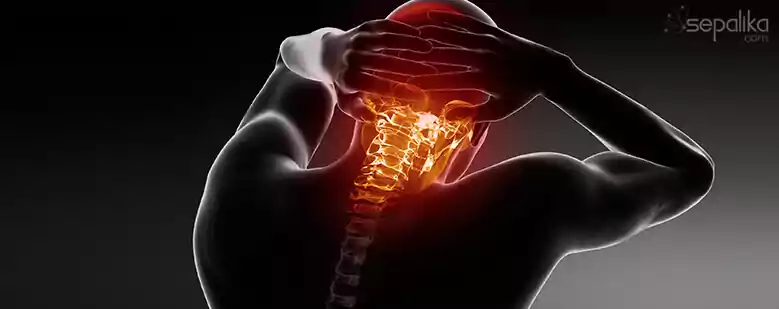
Living Well
Migraine Treatment: Don’t Pop That Pill
Jul 19, 2016For nearly a decade, I watched my mom suffer from debilitating migraine attacks. Her headaches lasted anywhere between 3 days to 2 weeks. Consults with headache specialists, neurologists, gastroenterologists and general physicians led to the same migraine treatment protocol – a potent cocktail of prescription meds. Unfortunately, none worked. What was worse, she encountered nasty drug side effects like weight gain.
Until her therapist, in holistic healthcare, figured it was her low levels of Vitamins D3 and B12 that were triggering her pain attacks. Four months of vitamin supplementing helped her get rid of migraines and truly gain a new life. She then went on to set up sepalika.com with her therapist, to help others understand the power of dietary supplements to help them with their chronic health conditions. Sadly, not one of the specialists she met over the years ever went down the dietary supplement route.
Vitamin D3 and a Vitamin B Complex have been proven, across several research studies, to help with migraines. These vitamins, amongst other nutritional supplements and simple lifestyle hacks, may be the magic formula to curing your unstoppable migraine.
Especially When Your Migraine Meds Don’t Work. But Why Would That Be?
Migraines can be caused by a variety of factors– stress, allergies to certain foods or alcohol, hormonal or chemical imbalances in the body and the brain, poor physical health or even emotional imbalances. When the causes are so many, pinpointing the right trigger for your migraine may take a very long time, leaving you on a lengthy, arduous and endless path of trial and error medications, which can do more harm than good.

Migraines can be caused by stress, allergies to certain foods, alcohol, hormonal imbalances, poor physical health or even emotional imbalances.
Most medications are stopgap measures – only temporarily suppressing painful migraine symptoms.
Moreover, long-term reliance on medications may make your body weak and dependent, reducing its ability to heal the cause of the migraine on its own.
This is the term for a chronic, daily headache that springs up when your body doesn’t respond to medications any longer. If you’re into self-medication, treating yourself with over the counter medications might be dangerous, since you have no way of knowing how certain medications might affect you, depending on your specific cause.
If you’re over 65 years of age, there is a good chance that the medications prescribed to you might not work at all.
Migraine medications are thus a gamble – but the path to curing your migraine doesn’t have to be played by chance.
Improving your nutrition through vitamin supplements and altering your lifestyle in small ways can actually make the world of a difference in dealing with your migraine treatment.
Why Vitamins B And D for Migraine Treatment?
When your brain is in a state of agitation, for whatever the reason – physical, emotional, chemical or hormonal – the neurons in your brain become hypersensitive, which is what allows you to feel so much pain. This is aided by the release of the chemical homocysteine, which increases your vulnerability to migraine attacks. Clinical research shows that Vitamin B12, B2 (also known as riboflavin) and folic acid help reduce the levels of homocysteine in your brain. This, in turn, reduces hypersensitivity in the brain, and studies show that the intake of B Vitamins has brought down the frequency and pain level of migraine attacks in people.
Interestingly, an American study showed that the majority of people who suffered from migraines also had a Vitamin D deficiency. Guess what? This deficiency also leads to cardiovascular disease, some of the symptoms of which are linked to migraines, especially in older people. Consuming foods or supplements rich in Vitamin D can bring down the occurrence and pain level of migraines, along with promoting cardiovascular health and reducing the onset of osteoporosis, giving you all round well being. Just remember – if you choose to go with a Vitamin D supplement, ensure that you have enough magnesium in your diet. Or supplement with magnesium as well. These two, along with calcium and Vitamin K2, form a close quartet and must be properly balanced in the body.
Substituting your migraine medications with vitamins over the long term can not only help with them being two of the best supplements for migraine, but also strengthen your body and reduces its dependence on chemicals for life.
If the D or B family vitamins are not your problem, here are a few other supplements that could you could try to help crush that migraine. Remember, one size does not fit all and you would do well to try one thing at a time.
Caffeine
Caffeine constricts blood vessels and reduces pain, so a nice cup of coffee should be a quick cure for your headaches. However, excess caffeine leads to high blood pressure, which would increase the pain – so be careful with the balance on this one.
Dosage: 250mg per day (when taken as a supplement)
Coenzyme Q10
CoQ10 is an antioxidant that helps remove damaging free radicals in the body. Much like vitamins, it also aids proper cell function and provides energy, thus helping reduce migraine occurrences. Natural sources include soybean oils, chicken, beef, broccoli and fruits like oranges and strawberries.
Butterbur
The extract from the butterbur shrub has been shown in some cases to prevent frequent headaches. Be very careful that the sample of extract you purchase has been removed of all carcinogenic substances beforehand.
Dosage: 50-100mg twice a day with meals
Magnesium
Most people who suffer from migraine also suffer from a magnesium deficiency. This can be caused when there are hormonal changes or imbalances in the body, Magnesium deficiencies occur especially during menstruation. Magnesium supplements can be used to correct this imbalance, reducing the occurrence and severity of migraines. Natural sources include coffee, cocoa, tea, spices and rich green vegetables. Use a citrate or a malate form of magnesium. The oxide form is cheap, but gives many people diarrhea.
Dosage: 300-600mg elemental magnesium, daily
Feverfew (Tanacetum parthenium)
Feverfew is often taken in combination with magnesium and riboflavin (vitamin B2) for maximum effectiveness. Feverfew limits the release of serotonin from platelets, which is one of the causes of migraine. It also inhibits the release of histamine, another migraine aggravating chemical. This reduces the frequency and severity of migraine induced headaches.
Dosage: 50-100mg, daily
As always, consult your doctor for specific doses for yourself, especially if you are already on medications for migraine.
Revamp Your Lifestyle: Non-Conventional Cures to Migraines
Addressing various causes for migraines may sound tricky, but several of these lead back to physical or emotional stress. This stress then manifests itself as perpetually contracted muscles, high blood pressure, chemical or hormonal imbalances and hypersensitive brain activity, all of which lead to – you guessed it – your migraine. The key to reducing this stress on your body can be found in simple, yet life-altering migraine hacks listed below. If you have any serious health condition that prevents you from making exercise part of your life, please consult your doctor and only do what is physically appropriate for you.
Yoga
- Results in a reduction in frequency of headaches, pain level, anxiety, and medication use.
- Why it works in migraine treatment: Yoga is a form of mind-body therapy, which relaxes the mind to alleviate emotional causes of anxiety and stress. It simultaneously relaxes body, loosening muscles in high tension areas (neck, shoulder, forehead, temples) and hence reduces pain. The breathing and meditation techniques relax nervous system and internal stress response systems, thereby toning and strengthening sensitive nerves and glands. Yoga also stimulates the release of “good hormones” that lower pain levels and correct hormonal imbalances.
- Anywhere between 2-3 sessions a week should give you much better results.
Exercise Regularly
- Physical activity helps tone the muscles of the body, strengthens arteries and helps blood vessels expand, improving blood flow. This reduces blood pressure and prevents the easy constriction of blood vessels in the brain, which is one of the causes for migraines. Exercising also allows you to physically vent your stress on your external environment, which then prevents the stress from adversely affecting your brain functions.
- As with yoga, 2-3 sessions a week of any sport of your choice, including dancing, will do you good.
Sleep Regularly
- Our bodies require rest as much as they require food or water, yet we tend to prioritize sleep last on our to-do lists. Our bodies, including the nervous system, use sleep to repair the damage done to it during the day. Poor sleep leads to the untimely and haywire release of chemicals in our body, upsetting natural balances.
- A minimum of 6-8 hours for adults, in regular cycles, can remove the most widespread cause of migraines – chemical imbalances and a damaged central nervous system.
Stay Hydrated
- Drinking lots of water keeps the muscles hydrated and relaxed, which automatically lowers blood pressure by preventing blood vessels from constricting easily. Lots of water also keeps the neurons in our nervous system healthy, preventing the degeneration and dysfunction that may lead to migraines. If you have any kidney issues, please check with your doctor before increasing your water intake.
References:
1. Effectiveness of Yoga Therapy in the Treatment of Migraine Without Aura: A Randomized Controlled Trial, Headache: The Journal of Head and Face Pain. 2007, Issue 5, Volume 47, 654-661. P.J. John PhD, Neha Sharma MSc, Chandra M. Sharma MD, DM and Arvind Kankane MD.
2. Silberstein, SD Lipton, RB Goadsby, PJ Smith, RT. Headache in Primary Care. Oxford: Isis Medical Media, 1999.
3. Ramadan NM, Halvorson H, Vande-Linde A. Low brain magnesium in migraine. Headache. 1989;29:590–593.
4. Mauskop A, Altura BM. Role of magnesium in the pathogenesis and treatment of migraine. Clin Neurosci. 1998; 5:24–27.
5. Murphy JJ, Heptinstall S, Mitchell JRA. Randomized, double-blind, placebo-controlled trial of feverfew in migraine prevention. Lancet. 1988; 2:189-192.
6. High-Dose Riboflavin as a Prophylactic Treatment of Migraine: Results of an Open Pilot Study, Sage Journals, Cephalagia. 1994. J Schoenen, M Lenaerts and E Bastings.
7. Dietary supplement for supporting cerebrovascular tone and treating migraine headaches. Google Patents, 1998. Curt Hendrix.
8. Caffeine as an analgesic adjuvant in tension headache, National Institute of Health. 1994 Nov; 56(5):576-86. Migliardi JR, Armellino JJ, Friedman M, Gillings DB, Beaver WT
9. Efficacy of coenzyme Q10 in migraine prophylaxis: A randomized controlled trial. Neurology 2005;64:713-5. Sandor PS, Di Clemente L, Coppola G, et al.
10. An extract of Petasites hybridus is effective in the prophylaxis of migraine. International Journal of Clinical Pharmacological & Therapeutics. 2000;38:430-5. Grossmann WM, Schmidramsl H.
11. Prophylaxis of migraine with oral magnesium: results from a prospective, multi-center, placebo-controlled and double-blind randomized study. National Insitutte of Health. 1996 Jun;16(4):257-63. Peikert A, Wilimzig C, Köhne-Volland R.









